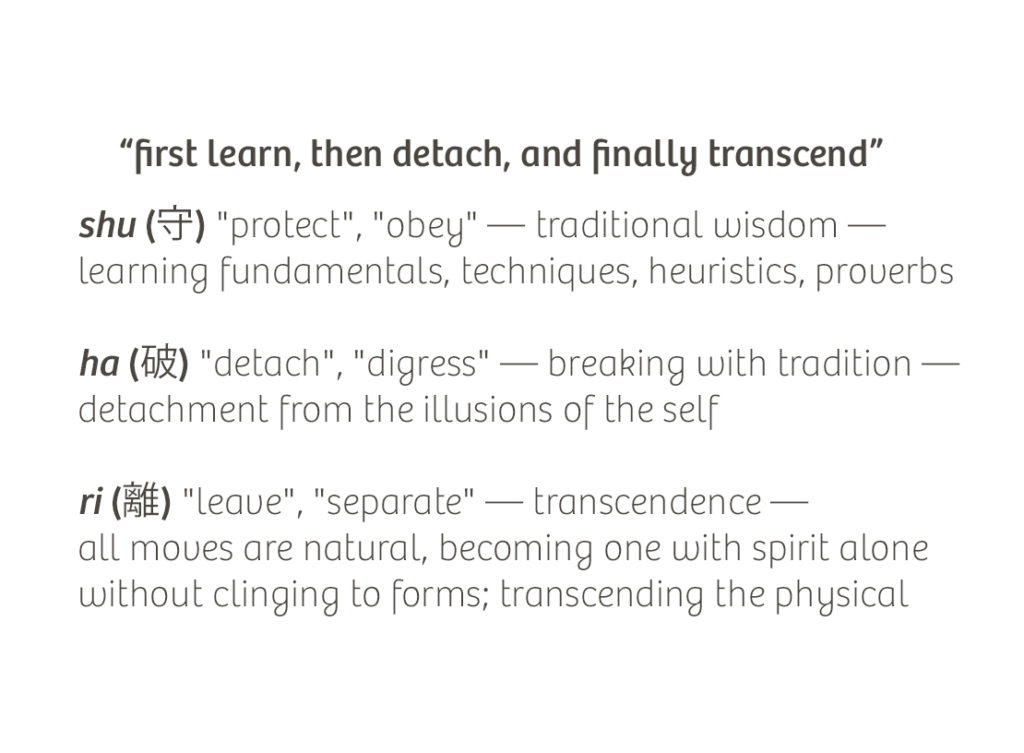What It Is:
Shu Ha Ri is a concept from Japanese martial arts that describes the stages of learning and mastery. It originated in martial arts disciplines such as Aikido and has been applied to various areas, including Agile methodologies in software development.
Meaning of Shu Ha Ri:
- Shu (守):
- Literal Meaning: “Protect” or “Obey.”
- Stage Description: In the Shu stage, the learner follows the teachings of a master without deviation. It involves practicing and absorbing the fundamentals and rules.
- Ha (破):
- Literal Meaning: “Detach” or “Break.”
- Stage Description: In the Ha stage, the learner starts to diverge from the strict forms and begins to experiment. This stage is about understanding the principles behind the forms and adapting them.
- Ri (離):
- Literal Meaning: “Leave” or “Separate.”
- Stage Description: In the Ri stage, the learner transcends the forms and principles. They have internalized the teachings to such an extent that they can express the art in a way that is unique to them.
How to Use It:
Using Shu Ha Ri in Agile Coaching:
- Shu (Follow the Rules):
- Application: Introduce team members to Agile practices and principles. Emphasize adherence to established frameworks and rules. It’s a stage of learning and acquiring a common understanding.
- Ha (Experiment and Adapt):
- Application: Encourage the team to experiment with Agile practices. Allow deviations from strict methodologies if it leads to improved outcomes. This stage is about understanding the principles and adapting them to the team’s specific context.
- Ri (Transcend and Innovate):
- Application: As the team matures, individuals should be empowered to innovate. They can transcend established practices and find new ways of working that align with Agile values. This is about expressing agility in a way that fits the unique needs of the team.
Understanding Shu Ha Ri can help Agile coaches guide teams through the various stages of learning and adaptation. It provides a framework for recognizing where a team is in their Agile journey and tailoring coaching approaches accordingly.
References:
- Books on Agile Practices:
- Explore literature on Agile methodologies, particularly those that discuss the principles and practices of Scrum, Kanban, and other Agile frameworks. Authors often touch upon the Shu Ha Ri concept in the context of Agile learning.
- Aikido and Martial Arts Philosophy Books:
- Delve into books on Aikido or martial arts philosophy. Some works explain the Shu Ha Ri concept within the martial arts context, providing insights into its origins and applications.
- Agile Coaching Workshops and Training:
- Attend Agile coaching workshops or training sessions. Agile coaches often incorporate the Shu Ha Ri concept into their teachings to guide teams through different stages of Agile maturity.
Visit the Agile Coach’s Toolkit for more definitions, models, theorems and stuff.

